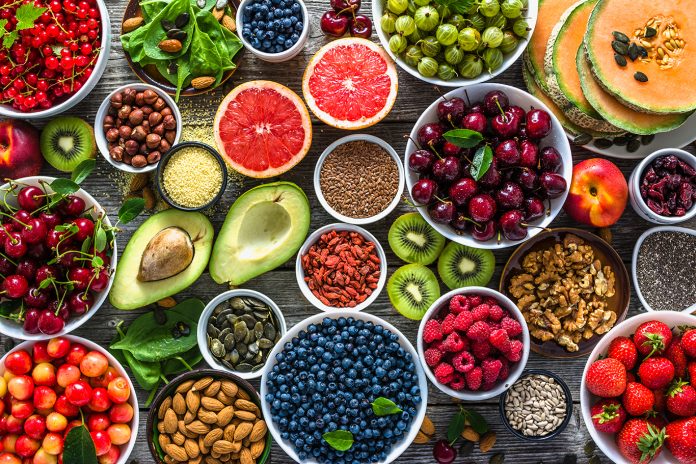It seems that not a week goes by without a new superfood trending on social media, promising to deliver astonishing health benefits.
From kale, chia seeds, coconut oil and turmeric, to quinoa, cacao nibs and hemp seeds – what’s so super about these so-called superfoods?
Food and nutrition expert, Associate Professor Jayashree Arcot from UNSW School of Chemical Engineering, says the term superfoods is sometimes thrown around loosely by ‘lifestyle gurus’.
While there is no universally agreed definition for “superfoods”, there is an appreciation of the health benefits due to the presence of bioactive substances and compounds found in them.
“Scientifically, there is no such thing as a superfood – they’re basically referring to nutrient-rich foods or compounds that have properties that can impact health, but with a noticeable label,” says Associate Professor Arcot.
“However, the term can, unfortunately, mislead people into thinking that certain foods have incredible nutritional and health properties and consuming them can solve every health problem.”
Kale, for example, is probably one of the most common foods mentioned when talking about superfoods.
While several studies have shown that kale contains antioxidants and anticarcinogenic potential, Associate Professor Arcot says there is still a lack of evidence to conclude that consuming kale provides more health benefits than other cruciferous vegetables such as cauliflower.
‘Food alone can’t address health concerns’
Associate Professor Arcot says that “no singular food group that holds the key to unlocking great health benefits” and while nutrition is one piece of the puzzle, food alone can’t address health concerns.
“Food alone cannot address health concerns – but it can play a role as part of a holistic treatment plan. If the goal is to lose weight, eating a superfood like blueberries will not achieve that on its own.
“However, it’s finding the balance of the right combination of these foods and in moderate quantities, for it to have some sort of a health impact, says Associate Professor Arcot.
While a balanced diet is known to be good for overall health, Associate Professor Arcot says that there are compounds found in some foods that have the potential to prevent or delay the onset of chronic health conditions.
“For example, the Mediterranean diet is a heart-healthy eating plan, which includes foods such as whole grains, fruits, vegetables and seafood, and is believed to support brain function and promote heart health,” says Associate Professor Arcot.
“Raspberries, blueberries, blackberries and cranberries are a nutritional powerhouse of vitamins, minerals, fibre and antioxidants and while these properties may address inflammation, they cannot be called superfoods as randomised control trials are needed to assess their efficacy in reducing inflammation.”
Not a superfood for everyone
Associate Professor Arcot warns that when it comes to prioritising individual foods, there isn’t a one-size-fits-all.
For example, blanketly recommending that everyone should be eating copious amounts of kale, may, in fact, be problematic for some people.
“If you start eating a lot of kale, nobody’s going to tell you it’s bad for you. Unless you’re somebody that is prone to kidney stones, for instance, then you’re probably having too many oxalates – a compound found in leafy vegetables – when you’re advised to have less of it in your diet,” says Associate Professor Arcot.
How much is required?
Another consideration is knowing exactly how much of these superfoods we should be consuming in order to gain the benefits.
Turmeric, for example, is a common spice used in cooking and is one of the latest “superfoods” to gain popularity. It contains a powerful compound called curcumin, which is known for its potent anti-inflammatory properties.
But how much turmeric should we actually consume in order to gain health benefits?
Associate Professor Arcot says this is a complex area and more research is required here.
“Sometimes the compounds that we need only exist in minute quantities in the food we eat,” she says.
“There’s still a long way to go in terms of research before we know the exact quantities needed to bring these sorts of changes in the body. But we do know that the effects can be cumulative over time.
“It’s all about prevention of ill-health – and a healthy diet with the right foods will contribute to overall wellbeing.”









